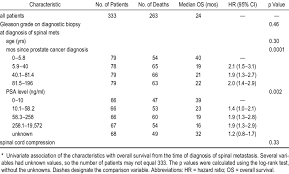Understanding Metastatic Cancer: Impacts and Treatments

The Importance of Understanding Metastatic Cancer
Metastatic cancer, or stage IV cancer, is a critical health issue that continues to challenge the medical community and impact thousands of lives. It occurs when cancer cells spread from the original tumour to other parts of the body, making treatment more complex and often leading to poorer prognoses. Understanding metastatic cancer is vital not only for developing effective treatments but also for advancing patient care and support.
Current Events and Facts About Metastatic Cancer
Recent studies highlight the rising prevalence of metastatic cancer among various demographics. According to Cancer Research UK, metastatic breast and prostate cancers have seen an increase in cases, partly due to enhanced screening and diagnostic capabilities that enable earlier detection of advanced stages. The National Health Service (NHS) reports that as of 2023, more than 367,000 people in the UK are living with metastatic cancer.
In late 2023, significant advancements were made in the field of immunotherapy, particularly for treating metastatic melanoma and lung cancer. Researchers from the University of London have presented promising results indicating that a combination of targeted therapies can improve survival rates by over 30%. These developments are crucial, as they offer new hope to patients facing the seemingly insurmountable challenge of metastatic disease.
Treatment Approaches and Support
The treatment landscape for metastatic cancer is multi-faceted. Traditional options include chemotherapy and radiation, but increasing emphasis is being placed on personalised medicine, which takes into account individual genetic profiles when determining treatment plans. As cancer biology becomes increasingly understood, new targeted agents are being developed that can halt the progression of the disease more effectively and with fewer side effects.
Support networks and innovations in palliative care are also incredibly important for patients and their families. The integration of counselling, nutritional support, and community resources can greatly enhance the quality of life for those living with metastatic cancer, addressing not only the physical but also the emotional and psychological challenges faced by patients.
Conclusion: The Road Ahead
As research continues to evolve, the future of metastatic cancer treatment looks promising, with ongoing clinical trials and a wealth of new data emerging. There is hope that by improving early detection methods and expanding treatment options, healthcare professionals can provide more effective care to patients battling this condition. For readers, staying informed about new advancements, clinical trial opportunities, and support resources can empower you or loved ones affected by metastatic cancer. Awareness and understanding are critical in navigating the complexities of this challenging disease.









